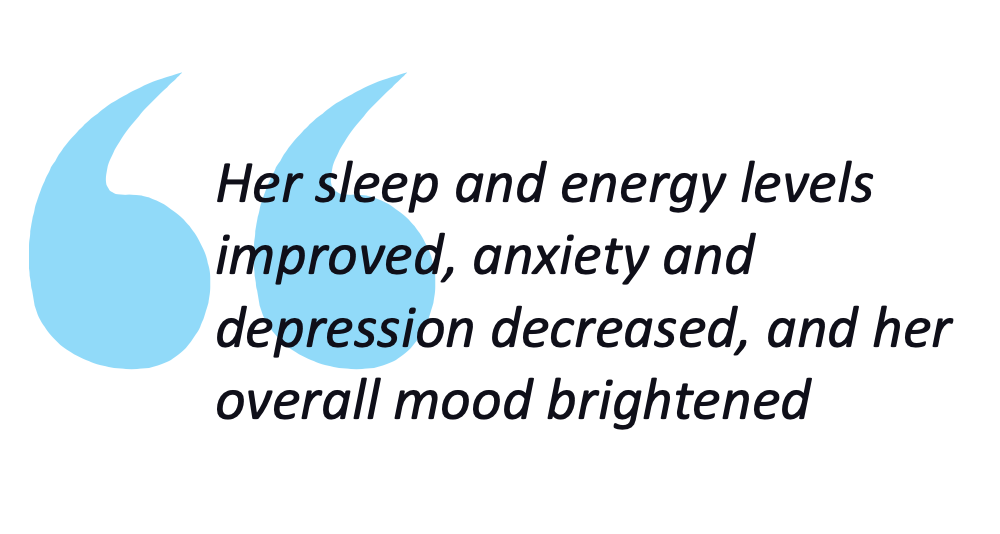
A concussion’s lingering effects can be challenging to navigate, often needing a multifaceted approach to recovery. In this post, we delve into the story of a 24-year-old woman who battled post-concussive syndrome for years and achieved full recovery with Equiscope therapy.
Understanding Post-Concussive Syndrome
A concussion is a head injury from a blow. An example might be a fall or being involved in a car crash. While you might recover in weeks, you could instead face prolonged symptoms known as post-concussive syndrome.
These symptoms can include headaches and mood swings, nausea or vision problems, and effects on memory and executive function, among others.
During the waiting time (to see if symptoms resolve on their own), it’s worth remembering that healthy nutrition plays a crucial role in recovery from post-concussive syndrome. Foods rich in antioxidants and Omega-3 fatty acids can help reduce inflammation in your brain. Staying hydrated is also vital – your brain is about 75% water, and even mild dehydration can worsen your symptoms.
Alternative Therapies in Post-Concussive Syndrome
However, while dietary changes can give your body a head start on recovery, they’re often not enough. If your symptoms persist, you usually need more in-depth interventions. This could involve therapies such as Equiscope, which addresses the root cause.
This client’s life with post-concussive syndrome began after multiple car accidents and a fall – a concussion at age 13, another at 20, and a significant one in 2018. Her symptoms were extensive: shortness of breath, difficulty swallowing, heartburn, easy bruises, night sweats, insomnia, poor circulation, muscle weakness, low energy, depression, and mouth breathing.
The Journey to Recovery
The technician used the Concussion Protocol, which involved hour-long Equiscope therapy sessions one to two times a week. They planned to continue this protocol for 1-2 months or until symptoms subsided. Dietary changes were also advised, including avoiding junk food and alcohol and reducing marijuana use.
In the first six weeks of therapy, the client experienced less severe and less frequent headaches. Her sleep and energy levels improved, anxiety and depression decreased, and her overall mood brightened. She was even able to return to her fitness routine.
 However, at week eight, she faced an unexpected setback – a car accident led to another concussion, prompting her symptoms to come back, with worse sleep, heightened anxiety, difficulty concentrating, and severe neck pain.
However, at week eight, she faced an unexpected setback – a car accident led to another concussion, prompting her symptoms to come back, with worse sleep, heightened anxiety, difficulty concentrating, and severe neck pain.
She and her therapist adjusted the therapy plan. For the next eight weeks, there would be longer sessions with 3-4 hours of therapy each week. The improvement was slow but steady.
Nine weeks after completing the 15-week therapy plan, she returned for six follow-up sessions, and experienced a full recovery from symptoms.
Can You Recover from Post-Concussive Syndrome?
Yes. Equiscope therapy harnesses your body’s natural restorative mechanisms, fostering cellular communication and restoring balance within your body’s bioelectrical systems. It does this by targeting the root cause – the specific areas damaged by the concussion – and assessing what needs to be rectified.
A Brighter Tomorrow with Equiscope
This client’s journey from debilitating post-concussive syndrome to full recovery serves as a beacon of hope for you if you’re grappling with similar challenges. Contact us at Intellbio today to explore how Equiscope can help you on your journey to a symptom-free future.
